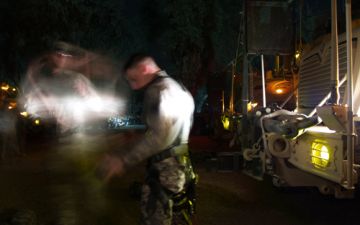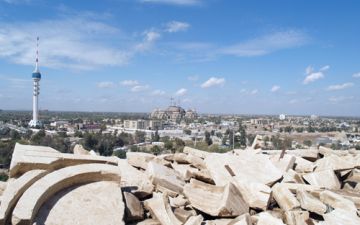In December 2005, two months after the ratification of the new constitution, 80 percent of Iraqi voters took part in the country's free parliamentary elections. High turnout and low levels of violence gave hope for optimism, but the future proved much, much darker. A vicious wave of terrorist attacks and sectarian bloodshed in 2006 nearly destroyed the little that was left of Iraq, and brought the country to the brink of civil war. Institutional infighting stalled the political process; armed militias, regular and irregular, roamed the neighborhoods, killing and kidnapping peaceful citizens at will; a culture of intimidation sent thousands of Iraqis fleeing their homes and country. For all the official talk, there was no government in charge.
Since 2007, with the surge of US troop levels and the Sunni Awakening in full swing, violence has not disappeared, but it has substantially decreased. Though still mired in rivalries, the representatives of the main political parties have been trying to forge a compromise. The parliamentary elections in March of 2010 tested the resolve of both Iraqi politicians and community to preserve the precarious peace and achieve greater national unity, beyond the fault lines of religion and ethnicity. The drama played out against stepped-up training of Iraqi police and army units by U.S. troops and contractors committed to an exit from the country by mid 2011.
These reports from Baghdad follow the 2010 Iraqi elections, before, during, and after.


